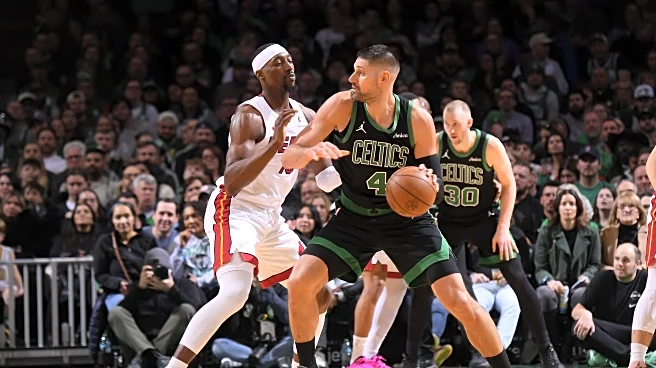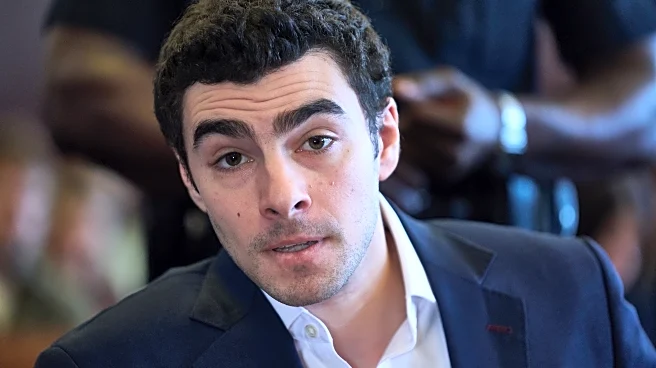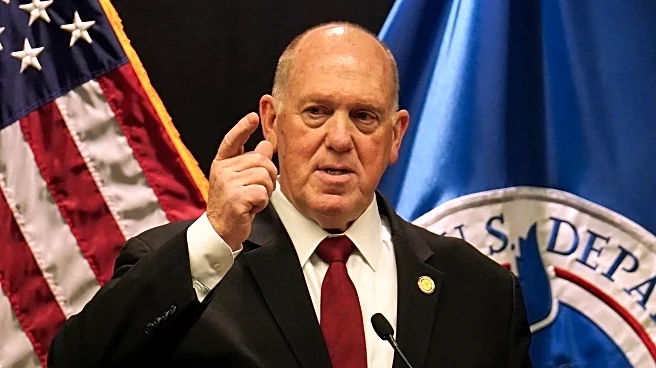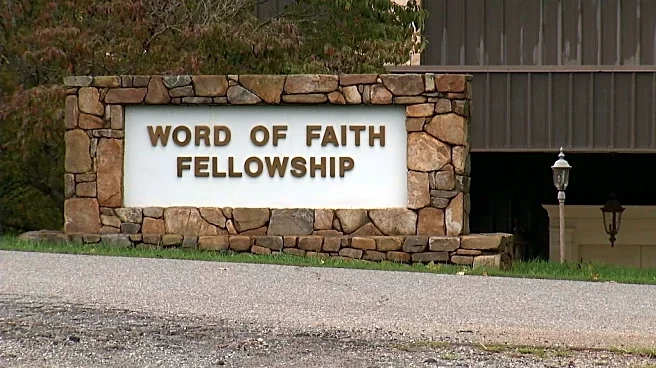What is the story about?
What's Happening?
UCLA has dismissed football coach DeShaun Foster following the team's 0-3 start to the 2025 season. Foster, who was in his second year as head coach, faced a challenging beginning with losses against Utah, UNLV, and New Mexico. Despite assembling a promising roster through the transfer portal, including former Tennessee quarterback Nico Iamaleava, the Bruins struggled offensively and defensively. Foster's tenure ended with a 5-10 record, and Tim Skipper will take over as interim coach. UCLA's athletic director Martin Jarmond expressed regret over the situation, acknowledging the challenges Foster faced as the team transitioned into the Big Ten.
Why It's Important?
The firing of DeShaun Foster is significant as it highlights the pressures and expectations within college football programs, especially as UCLA transitions into the Big Ten. The decision impacts the team's stability and future recruitment efforts, as evidenced by the loss of several commits from the 2026 class. The move also underscores the financial implications, with Foster owed over $5 million in buyout money. This change could affect the team's performance and morale, as well as its competitiveness in the Big Ten, a conference known for its strong football programs.
What's Next?
UCLA will begin the search for a new head coach, led by athletic director Martin Jarmond and executive senior associate AD Erin Adkins. The search will involve a committee of sports and business executives and UCLA alumni. The team aims to find a coach who can lead them to success in the Big Ten. Meanwhile, Tim Skipper will serve as interim coach, tasked with stabilizing the team and improving performance for the remainder of the season. The search for a new coach is expected to be thorough, given the attractive yet challenging nature of the position.
Beyond the Headlines
The firing of DeShaun Foster raises questions about the ethical and cultural dimensions of college sports, particularly regarding the treatment of coaches and the expectations placed on them. It also highlights the broader challenges faced by programs transitioning into more competitive conferences, such as the Big Ten. The decision may influence how other programs approach coaching hires and transitions, emphasizing the need for strategic planning and support.
















